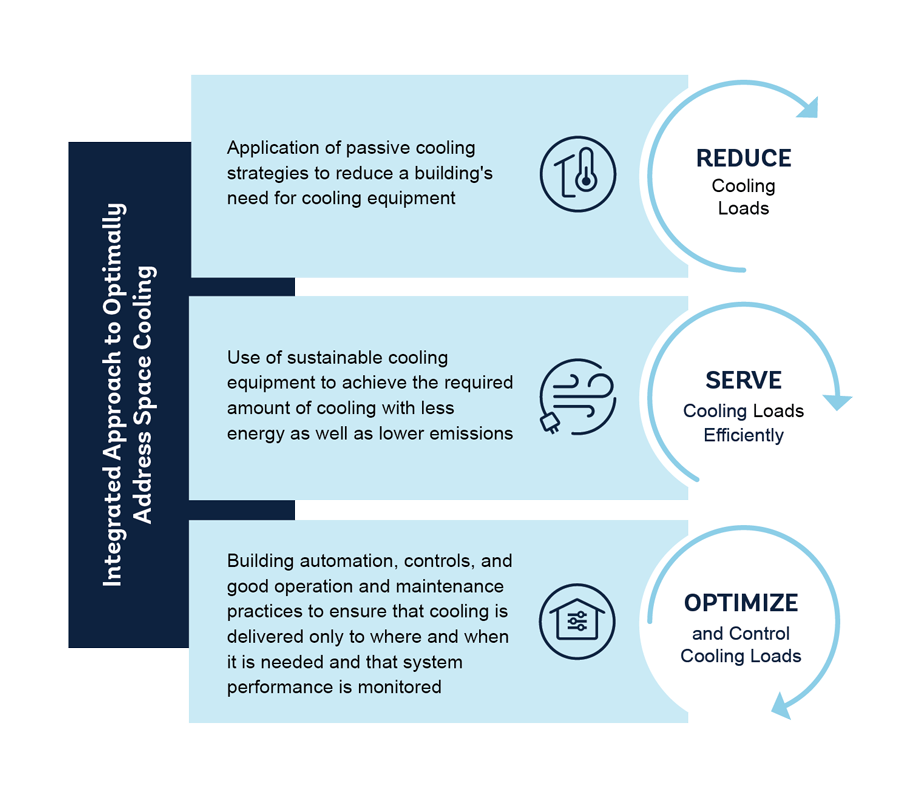
Report | 2020
Primer for Space Cooling
A World Bank Energy Sector Management Assistance Program (ESMAP) publication authored by Rocky Mountain Institute
Space cooling is a critical development need and an issue of equity in a warming world. The global energy use for space cooling is projected to jump from 2,020 terawatt-hours (TWh) in 2016 to 6,200 TWh in 2050—an astounding 300 percent increase. The Primer for Space Cooling has been developed to help address the critical need for access to sustainable space cooling.
The Primer discusses solutions that provide greater access to cooling, especially in large parts of the developing world facing increasingly high temperatures, while avoiding the considerable impacts on energy systems and the accompanying greenhouse gas emissions that would result from business-as-usual growth.
The objectives of the Primer are to introduce practitioners in different fields to the broad topic of space cooling and its key considerations. It also aims to initiate and advance sustainable space cooling into policy discussions and investment considerations in developing countries.
The Primer stresses that an integrative approach is foundational to addressing space cooling sustainably. This approach calls for reducing the cooling loads of buildings by applying building efficiency measures that enhance thermal performance, serving the cooling load as efficiently as possible through appropriate choice of cooling solution and utilization of the most efficient cooling equipment available, and optimizing the performance of cooling through their operation.

The Primer also presents demonstrated space cooling intervention strategies that can help overcome the underlying market barriers to scale up sustainable cooling. These interventions broadly cover (1) policy and regulatory measures, (2) financing and enabling mechanisms, and (3) supporting instruments including consumer and stakeholder awareness, strengthening of institutional and professional capacities, and promoting technology advancement leveraging refrigerant technology transition activity as required under the Kigali amendment to the Montreal Protocol.
These interventions are meant as options to inform strategies, implementation mechanisms, and pathways for countries that are seeking to make the leap to sustainable space cooling. For those interested in learning more about the interventions that could accelerate the pace of sustainable space cooling, a supplement to the Primer—the Compendium—contains detailed information covering 20 interventions, with over 100 examples highlighting real-life successful implementation and the respective key insights learned.
About World Bank ESMAP
ESMAP is a partnership between the World Bank and 18 partners to help low and middle-income countries reduce poverty and boost growth through sustainable energy solutions. ESMAP’s analytical and advisory services are fully integrated within the World Bank’s country financing and policy dialogue in the energy sector. Through the World Bank Group (WBG), ESMAP works to accelerate the energy transition required to achieve Sustainable Development Goal 7 (SDG7) to ensure access to affordable, reliable, sustainable, and modern energy for all. It helps to shape WBG strategies and programs to achieve the WBG Climate Change Action Plan targets.